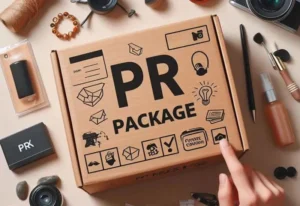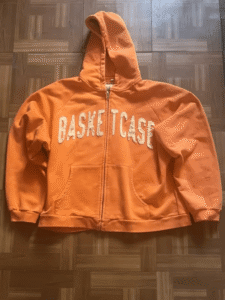
In the food packaging industry, you’re not just dealing with containers, labels, or materials—you’re responsible for safeguarding food products from contamination, ensuring quality, and keeping consumer safety at the forefront. It’s a massive responsibility, and the stakes are high. So, how do you guarantee that every box, bag, or bottle you produce meets the standards your clients expect? That’s where ISO 22000 Certification comes into play.
You’ve probably heard the buzz around ISO certifications—ISO 9001, ISO 14001, etc.—but ISO 22000 is the one you’ll want to focus on if you’re a food packaging and material supplier. But why is it so essential, and how exactly does it impact your business? In this article, we’re going to break down everything you need to know about ISO 22000 Certification, how it helps your company, and why it should be at the top of your to-do list.
By the time you’re done reading, you’ll not only understand what ISO 22000 is all about but also why it’s a game-changer for your operations, reputation, and bottom line.
What is ISO 22000 Certification?
Let’s start with the basics. ISO 22000 is an international standard that focuses on food safety management. It outlines the requirements for a food safety management system (FSMS), helping organizations, including food packaging suppliers, ensure the safety of food products at every stage of the supply chain.
For food packaging suppliers like you, this standard is critical because it ensures that your packaging materials are safe and won’t compromise the integrity of the food they protect. Whether you’re dealing with plastic, glass, or cardboard, if your packaging touches food, it must meet rigorous standards to prevent contamination. And ISO 22000 helps you do just that.
The certification process involves implementing a robust food safety management system that spans everything from risk management to employee training. This isn’t just about making sure your materials don’t harm consumers—it’s about proving that you are consistently capable of providing safe, reliable products.
Why Should Food Packaging Suppliers Care About ISO 22000 Certification?
Okay, so we know what ISO 22000 certification. But why should you, as a food packaging supplier, care about this certification? Well, here’s the thing: food safety isn’t just a regulatory requirement; it’s a business necessity.
1. Boost Your Brand’s Credibility
ISO 22000 Certification signals to the world that you’re serious about food safety. When you can confidently say that your products comply with internationally recognized standards, you stand out in a crowded marketplace. It demonstrates to your customers—whether they’re food manufacturers, distributors, or retailers—that you take food safety seriously and can be trusted to deliver products that meet stringent safety protocols.
Consumers and businesses alike are increasingly prioritizing food safety. With ISO 22000 under your belt, you’re telling them you’re on the cutting edge of food safety standards. Trust me, that kind of credibility can set you apart from competitors who might not yet have invested in the process.
2. Regulatory Compliance Made Easier
Let’s face it—compliance with local and international regulations is no joke. Different countries have different food safety regulations, but many of them align with the core principles of ISO 22000. By getting certified, you’re essentially future-proofing your business against the ever-changing regulatory landscape.
Imagine not having to worry about regulatory audits or fines because you’re already compliant with global food safety standards. That peace of mind is invaluable, and it allows you to focus more on innovation, customer satisfaction, and expanding your business.
3. Risk Management and Prevention
Food packaging suppliers deal with all kinds of potential risks—contamination, mishandling, and even packaging breakdowns. ISO 22000 Certification includes a rigorous risk management component. This helps you identify hazards, assess risks, and implement control measures to prevent food safety issues before they happen.
Not only does this help keep your products safe, but it also protects your brand reputation. The last thing you want is a food safety scandal on your hands. With a comprehensive food safety management system in place, you’re mitigating risks, ensuring consistency, and protecting your bottom line.
4. Operational Efficiency and Continuous Improvement
ISO 22000 isn’t just about meeting standards—it’s about improving your processes over time. Once you implement the certification requirements, you’ll quickly notice opportunities for greater efficiency within your operations. Whether it’s optimizing workflows, reducing waste, or cutting down on errors, ISO 22000 gives you a framework for continuous improvement.
By consistently revisiting your processes, gathering data, and making adjustments, you create a culture of quality within your organization. And this doesn’t just make your operations smoother—it boosts your reputation as a supplier who delivers quality day in and day out.
How Does ISO 22000 Certification Benefit Your Business?
There’s no doubt about it: ISO 22000 Certification isn’t just a checkbox on a list of requirements. It’s a catalyst for growth. Here’s how the certification can benefit your business in more concrete terms:
1. Attract More Clients
Food manufacturers and distributors are always on the lookout for suppliers who can provide safe, reliable materials. If you’re ISO 22000 Certified, you’ll find it easier to attract clients who care deeply about food safety. Your certification shows that you understand the full scope of food safety requirements, and that you’re prepared to deliver packaging materials that meet their needs.
If you’re targeting international markets, ISO 22000 is especially important. Many companies in Europe, the U.S., and beyond require that their suppliers be ISO 22000 Certified, so having the certification can be the key to expanding your reach and building stronger business relationships.
2. Increase Your Profitability
Think about the cost savings that come with better risk management. When you prevent issues before they arise—whether it’s contamination or faulty packaging—you save money on reworks, product recalls, and legal battles. That’s money back in your pocket.
Moreover, being ISO 22000 Certified could allow you to charge a premium for your products. Companies are willing to pay more for packaging materials that come with the assurance of safety and quality. And when you’re offering consistent, reliable products, your clients will keep coming back for more.
3. Improve Supplier Relationships
As a food packaging supplier, you work with a variety of other businesses—whether they’re manufacturers, distributors, or logistics providers. Having ISO 22000 Certification makes you a preferred partner in the supply chain because it guarantees the safety and integrity of the materials you provide. Your suppliers and clients will trust you more, knowing that you’ve invested in rigorous standards to safeguard food safety.
What Does the ISO 22000 Certification Process Look Like?
Now that we’ve covered the why and how, let’s briefly touch on the certification process. It’s not as intimidating as it sounds! In fact, if you’re committed to implementing food safety management best practices, it’s a logical and rewarding process.
- Assessment: First, your company will undergo an internal assessment to identify any gaps in your food safety management system. This is where you’ll review your current practices and procedures.
- Documentation: You’ll need to document your food safety management system—this includes everything from risk assessments to procedures for monitoring food safety.
- Implementation: Once your system is documented, you’ll implement the processes across your entire operation. This might include training staff, establishing new workflows, and ensuring compliance at every level.
- Audit: An external certification body will audit your systems to ensure that you’re meeting ISO 22000 standards. This is a comprehensive evaluation of your operations, including documentation, processes, and management systems.
- Certification: If you pass the audit, you’ll be awarded the ISO 22000 Certification, which you can proudly display to customers and regulators alike.
- Ongoing Maintenance: After certification, you’ll need to regularly monitor and review your system to ensure ongoing compliance. Regular audits and internal reviews will keep you in top shape.
The Bottom Line: ISO 22000 Certification is More Than a Credential
If you’re a food packaging supplier, ISO 22000 Certification is your ticket to not just compliance, but to growth, credibility, and a sustainable future in the food safety space. The benefits—from risk management to client trust—are clear, and the process is more than worth the effort.
At the end of the day, it’s about creating a safe, efficient, and reliable food packaging operation. So, if you haven’t already considered getting ISO 22000 Certified, now’s the time to make that move. It’s not just a certification; it’s an investment in your business’s future success.




